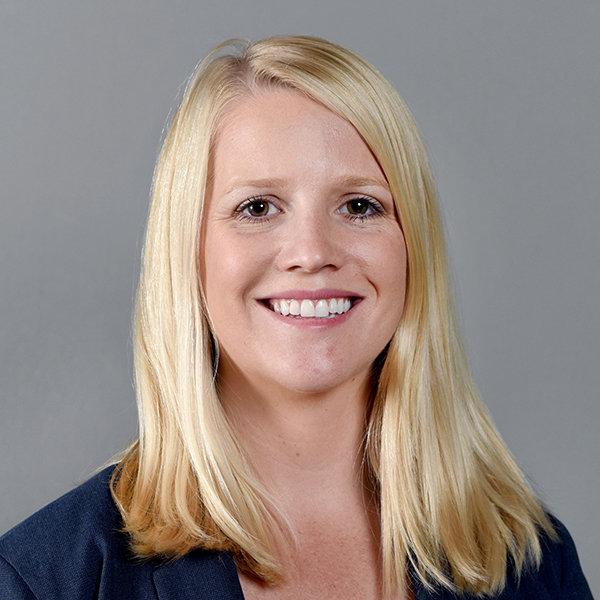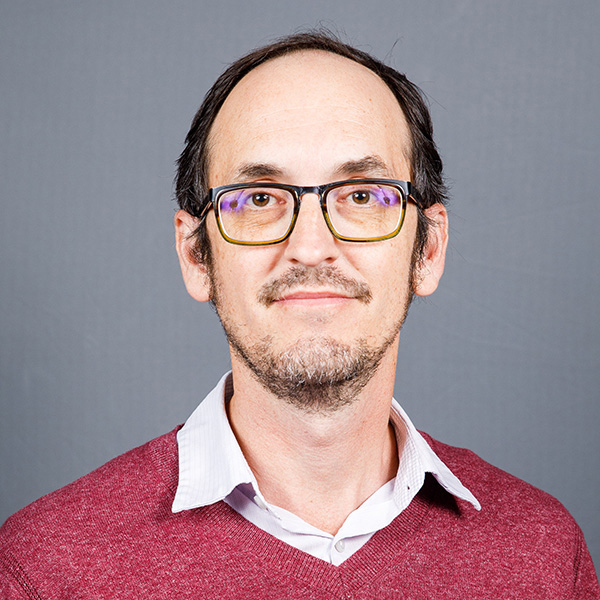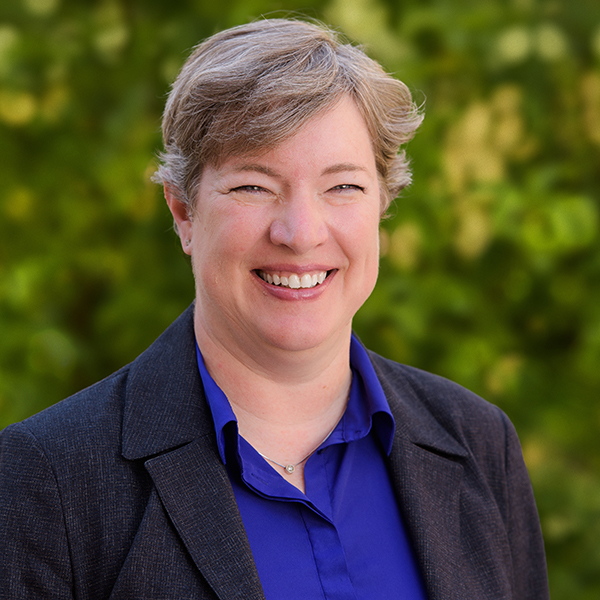Actionable science, boundary organizing and co-production of biodiversity outcomes
Our goal through this project is to gain a better understanding of the determinants of actionable science in conservation. While there has been exponential growth in conservation research, much of this science fails to be translated into practice and policy. Numerous solutions have been proposed to bridge this knowledge-action gap, yet it persists.



Arctic Robust Communities-Navigating Adaptation to Variability
Navigating the New Arctic (NNA) projects address convergence scientific challenges in the rapidly changing Arctic. The Arctic research is needed to inform the economy, security and resilience of the Nation, the larger region and the globe. NNA empowers new research partnerships from local to international scales, diversifies the next generation of Arctic researchers, and integrates the co-production of knowledge.




ASU Nanofab
ASU NanoFab is a flexible nano-processing facility at Arizona State University that offers state-of-the-art device processing and characterization tools for university research and for external company prototype development. Established companies and innovative start-ups especially can benefit from using this advanced facility to accelerate their prototype development. We provide the facility, equipment and resources for a full range of operations—from the wet world of biosystems and chemistry to the dry world of inorganic materials, as well as the hybrid structures in between.

Bob Ramsey Executive Education Program
The Bob Ramsey Executive Education Program provides innovative professional development programs and customized services that build the capacity of people and organizations that serve the public. The Certificate in Public Administration for International Leaders includes topics such as leadership, collaboration, public-private partnerships, community conflict resolutions, pollution, urban challenges and opportunities, information technology, and electronic government practices.

CAP LTER Sustainable Futures Scenarios
Urban sustainability and resilience are important guiding visions for cities. Urban ecology can bring useful perspectives on the future development of cities, but requires collaborative approaches to address city planning and management needs.




Center for Science, Technology & Environmental Policy Studies
The Center for Science, Technology, and Environment Policy Studies (CSTEPS) serves as an international focal point for interaction among faculty, researchers, students, and practitioners on ideas, problems and promises at the nexus of science, technology, and the environment.







Climate-Engineering Governance Initiative
The Climate Engineering Governance Initiative (CEGI) serves as a platform for collaboration and coordination among people at ASU and beyond who are engaged in policy, law, markets and other aspects of climate engineering and carbon dioxide removal strategies. Governance refers to the way human action evolves and takes shape, with what kinds of rules, cultures, and norms. CEGI’s mission is to foster critical research into the nuts and bolts of governance in this rapidly changing field and, through collaborations with partners nationally and globally, bring more clarity to these issues and meaningfully engage scientists, scholars, decision-makers and citizens.





Complex Adaptive Systems Initiative
Complex Adaptive Systems Initiative leverages trans-disciplinary relationships to address complex global challenges in health, sustainability, security and education by creating entirely new technologies and novel solutions. This requires integration of diverse research disciplines across the University and building an extended network of global collaborations.




Decision Theater
The Decision Theater Network actively engages researchers and leaders to visualize solutions to complex problems. The Network provides the latest expertise in collaborative, computing and display technologies for data visualization, modeling, and simulation. The Network addresses cross-disciplinary local, national and international issues by drawing on Arizona State University’s diverse academic and research capabilities.

ECO PHX Project
ECO PHX, located at 301 W. Roosevelt Street, is a mixed-use urban infill development of 70 apartment homes and six commercial spaces in downtown Phoenix.





Ecosystem Response to N and Organic C Deposition from the Urban Atmosphere
The "Urban Air" project studies the exchange of chemical elements between land and atmosphere in urban systems.




Effects of Changes in Climate on the Functioning of Arid and Semiarid Ecosystems
Long-term Ecological Research (LTER) networks, National Ecological Observatory Network (NEON), and others measure net primary production, plant species composition and precipitation for decades in arid and semiarid ecosystems. However, scientists cannot predict the future functioning of these ecosystems under climate change because it is impossible to extrapolate patterns emerging from observations and correlations beyond their original range. Only experimentation allows us to establish cause-effect relationships that can be used to predict the future functioning of arid ecosystems under novel climatic conditions. In addition, it is now clear to scientists that is impossible to predict responses to long-term directional changes based on short-term trends. In deserts of the American Southwest, as in many arid-semiarid regions globally, precipitation amount and its variability are expected to change as a result of climate change.

Empowerment for Peace through Leadership in Agribusiness and Sustainability; Eradicating Poverty in Rural Communities
Arizona State University (USA), Gandhi Research Foundation (India), and Jain Irrigation Systems, Ltd. (multinational company headquartered in India) have partnered to create EmPeace LABS (Empowerment for Peace through Leadership in Agribusiness and Sustainability), a training and leadership program committed to building a strong foundation for global peace by preparing young professionals for leadership in agri-business and sustainability. This unique project will create a global network that supports the realization of the United Nations Millennium Development Goals by connecting agricultural and capacity-building organizations with community leaders from participating countries.

Energy, Science, and Policy Initiative
ESPI's objective is to to establish a strong program of research and policy engagement to understand and analyze the social dynamics of past, present, and future energy systems.


Exotic Grass and Woody Plant Encroachment in Southwestern Rangelands
Arid and semi-arid landscapes represent a substantial percentage of terrestrial net primary productivity. Although characterized by low and highly variable annual rainfall these landscapes contain >30% of the world’s human population and support the majority of global livestock production. As such, rangelands play an important role in global biogeochemical cycles and human health.


Forecasting Dryland Vulnerability
We aim to help DoD managers plan for and manage ecosystems affected by climate change through a multidisciplinary effort to understand the interactive effects of climate change and disturbance on vegetation communities and ecosystem processes of DoD lands across three large deserts of the western U.S.





GIS-P: A Tool for Sustainable Phosphorus Management
Nutrient management is a major sustainability issue. A substantial fraction of our water resources are polluted with too much nitrogen and, more importantly for freshwater, phosphorus. This results in major biodiversity loss, tainted drinking water supplies, economic damage to water-dependent industries, reduced recreational activities, and decreased property values. Our phosphorus resources require better management. They need to be used more efficiently and recycled more effectively. The Sustainable Phosphorus Alliance has developed GIS-P as a tool to facilitate enlightened phosphorus management.


Global Biosocial Complexity Initiative
The Global Biosocial Complexity Initiative (formerly the Consortium for Biosocial Complex Systems) generates fresh insight into global challenges and transforms their findings into real-life applications that improve the human condition. The mission is to develop and promote a new science of biosocial system dynamics that uses a complex systems paradigm, computational thinking and quantitative methods to forge a new and holistic understanding of life and society. Through dynamical discussions, visiting scholars, lecture series, major research projects and novel courses and degree programs, we are rapidly solidifying the science that holds the key to solving our most complex challenges. We are committed to fostering diversity in STEM education, and actively recruit students from diverse backgrounds who are strong on potential, but may be lacking opportunities and mentors.
























Global Ethnohydrology Study
The Global Ethnohydrology Study is a multi-year transdisciplinary project using data collected with local communities from around the globe. The goal is to better theorize how people understand and adapt to the everyday challenges of getting enough safe water, and to explicate the health and psychological impacts of that struggle.


GlobalResolve
GlobalResolve was established at ASU in 2006 as a social entrepreneurship program designed to enhance the educational experience for interested and qualified ASU students by involving them in semester-long projects that directly improve the lives of underprivileged people, and/or those in underdeveloped nations throughout the world.


Humanities for the Environment - Dinner 2040
This pilot project seeks to establish a model for other communities to employ as they consider the future of food in their regions.








Humanities for the Environment - Life Overlooked
Contributors, including senior academics, community members, and students, raise questions about the consequences of ecological transformation and control for wildlife, plants, and the human-nature relationship. They examine both traditional notions of stewardship (e.g., the idea of overlooking) and also cultural blindspots in traditional modes of interacting with nature.


Humanities for the Environment / An Archive of Hope and Caution
Contributors to the archive of Hope and Cautionary Tales have undertaken to create a digital archive of stories about how scholars and community members are collaborating on projects that work towards increased environmental sustainability and social justice
International Union for Conservation of Nature Partnership
The Center for Biodiversity Outcomes is involved with a variety of activities and opportunities designed to advance the mutual biodiversity goals of the center and of the International Union for Conservation of Nature.


Knowledge Enterprise for Resilience (KER)
ASU’s Knowledge Exchange for Resilience includes partnerships among community-based organizations, academic researchers, citizen scientists, private entities, and public institutions.



LightWorks®
ASU LightWorks® is a multidisciplinary effort to leverage ASU's unique strengths, particularly in renewable energy fields including artificial photosynthesis, biofuels, and next-generation photovoltaics.





Marine Biodiversity and Petrochemical Vulnerability in the Gulf of Mexico
GoMex Explorer is a spatial decision-support tool for marine biodiversity and petrochemical vulnerability in the Gulf of Mexico Large Marine Ecosystem, or LME. A fundamental understanding of how multiple stressors impact marine organisms in the Gulf of Mexico is critical to the development of effective management, restoration, recovery and mitigation initiatives for living marine resources.


Mobile Cooling Center
This project retrofitted a trailer into a mobile cooling center that provides air-conditioning, cold water, Wi-Fi and resources to the City of Tempe homeless population. This pilot aims to create a mobile cooling center that doesn’t impact air quality by using solar panels.

North American Observatory:
Building Resilience in the Anthropocene
Humanities for the Environment is an international system of Observatories. ASU serves as the headquarters of the North American Observatory. The aim of the Humanities for the Environment (HfE) Observatories, funded in its first phase by the Andrew W. Mellon Foundation, is to identify, explore, and demonstrate the contributions that humanistic and artistic disciplines can make to understanding and engaging with global environmental challenges.










Phoenix Area Social Survey
This survey studies the relationships between people and the natural environment in the Phoenix metro area.











Potential and emerging impacts of the changing institutional landscape on the global exchange of genetic resources for food and agriculture (GRFA)
This project, funded by the USAID Bureau of Food Security, aims to identify the potential and emerging impact of the Nagoya Protocol and other international policies on the global exchange and use of genetic resources for food, agriculture, and development. It is motivated by the simultaneous increase in demand for global research collaboration and the rise of institutional constraints over biological materials.

Return on investment in biodiversity conservation
Global biodiversity loss is occurring at an unprecedented rate, due in part to a significant shortfall in funding for conservation actions. This research seeks to answer, “How much does it cost to achieve a conservation outcome?”


Small World/Big Bodies
Small World/Big Bodies is a multi-year and multi-sited project tackling the complex question of how and why stigmatizing attitudes toward overweight and obese bodies are becoming more negative and spreading even as obesity becomes more common.


Spirituality and Sustainability Initiative
Founded in 2015, the Spirituality and Sustainability Initiative (SSI) integrates perspectives on sustainability and innovation with an awareness of the sources, dynamics, significance, and meaning of values and ethical convictions for driving aspiration and action, and as factors in personal and collective resilience. In other words, the kinds of questions and commitments associated with spirituality not only fit with but are intrinsic to a comprehensive and holistic approach to sustainability. SSI is a secular, non-sectarian effort, defining spirituality broadly to include humanistic values and informal modes of spirituality as well as established religious traditions.

Sustainable Energy, Education and Knowledge-Sharing (SEEK) Project
The Sustainability Energy, Education and Knowledge-sharing (SEEK) Project catalyzes the values-driven leadership of cohesive social networks, such as congregations and non-profits, to accelerate societal energy transitions through education, technical assistance, and social innovation. An action research project of the Spirituality and Sustainability Initiative, SEEK relies on a novel model for leveraging existing assets and in-kind resources from multi-sectoral partners (including universities, congregations, commercial energy professionals, federal programs, and local leaders) to provide tailored mentoring and technical assistance in face-to-face and virtual formats that facilitate progressive knowledge development, knowledge sharing, and mutual problem-solving.

Sustainable Phosphorus Alliance
The Sustainable Phosphorus Alliance is a nonprofit organization driven to innovate and implement solutions to the phosphorus challenge. Our mission is to be North America’s central forum and advocate for the sustainable use, recovery, and recycling of phosphorus in the food system.

Sustainable Purchasing Research Initiative
The Sustainable Purchasing Research Initiative produces actionable knowledge about sustainable purchasing globally.



The Household Independent Power Project
The Household Independent Power Project (HIPP) conducts investigations and engagement around personal and household-scale decisions, innovation, and behavior related to broader questions of sustainable energy system transition.
The Sustainability Consortium
The Sustainability Consortium (TSC) is a global organization dedicated to improving the sustainability of consumer products.


Total: 40



